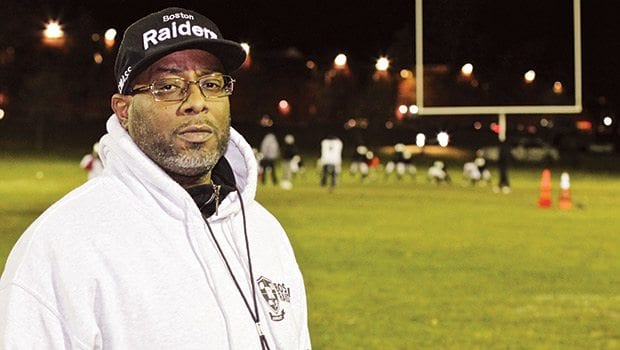Kidney failure: A silent complication
Dialysis and transplant the only treatments

Antoine Davis always thought high blood pressure was a condition of older adults. Since his father had high blood pressure, he knew it probably was quietly lying in wait for him.
But when he was diagnosed in his late 20s he was taken aback. What shocked him even more were his actual numbers — 210/105. Normal blood pressure is less than 120/80. “You’re in stroke mode,” the nurse told him as she quickly ushered him to the emergency department. Davis said he was poked and prodded and eventually prescribed a number of pills to bring his pressure in line.
But the fear of a stroke slowly receded into the background, and the young, reckless male temperament took hold. “I’d follow the regimen for a while,” he explained. “But I was young and foolish and thought that I was invincible.”
He said his pressure came down a little but it was a constant battle for him. “I gained a lot of weight,” he said. Excessive weight is linked to high blood pressure. He ignored his doctor’s recommendations. He missed his six-month interval appointments, and his adherence to his recommended drugs was spotty at best.
He ticked off the reasons for his behavior. He was feeling okay; he really didn’t need the meds; he forgot to take them; he was too busy. His job as a police officer in a major hospital and his responsibility for his daughter took preference.
Davis admitted he fell into the same pattern as millions of other people in this country with high blood pressure. He had no symptoms. He went this long without a problem. Perhaps he had dodged a bullet, he reasoned.
Unfortunately, that was not the case. His blood pressure silently began to cause damage. In 2012 the bottom fell out of his excuses. “I felt sluggish,” he explained. Then fatigue set in. One day he was not sure he could make it from the subway station to work. “I thought I was going to pass out right there in the street,” he said.
He went to the emergency department and was told something he never saw coming. He was in kidney failure. “This was the longest day of my life,” he admitted. Within a couple of days he was on dialysis and continues treatment three times a week for two hours at a time. He is on a list to receive a kidney transplant.
Davis is only 44 years old.
If he only knew then what he knows now. Davis chides himself. “This is all on me,” he confessed. “I did not take this [high blood pressure] as seriously as I should have.” If he could turn back the clock things would be different. He said he would listen to his doctor and show up for appointments. Most of all he stressed the need for education. High blood pressure is often preventable. He knows that now.
It is too late for Davis. The damage is already done, but he is determined to prevent it from happening to others. Young people are his main target. Davis is an assistant coach with Pop Warner football. He is trying to train his kids to win not only on the football field, but also in their health. He warns them about junk food, salt, sugar and tobacco use. He uses himself as an example. “I’m only 44 years old,” he explains. “I should not have this [kidney failure]. I wouldn’t wish it on anyone.”
Davis keeps pushing. “If I can save just one or two lives, I will have succeeded,” he said.







